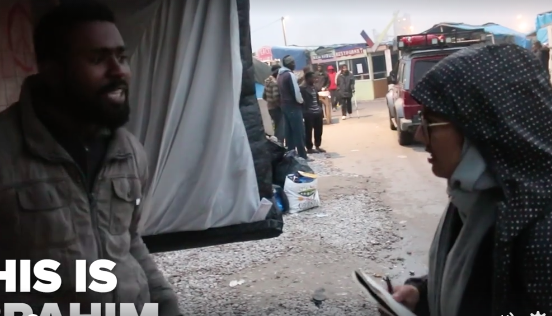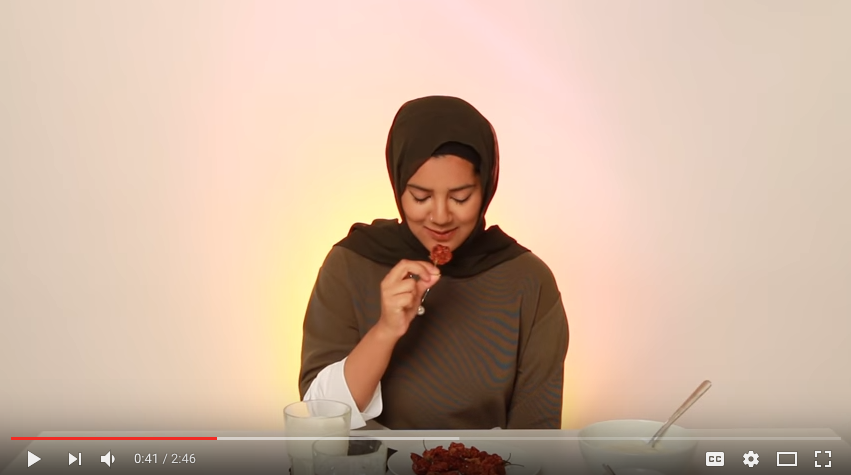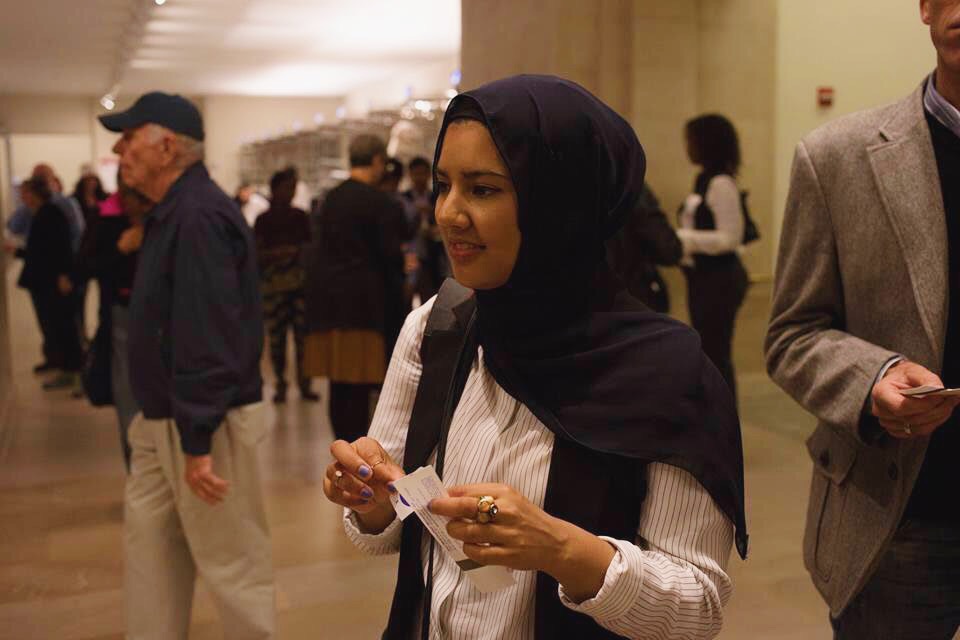Aisha S. Gani
/Senior Reporter | BuzzFeed News




Aisha Gani is a Senior Reporter for BuzzFeed News, covering Muslim affairs. She also reports on human rights abuses, particularly in relation to British arms deals in the Gulf. She is based in London.
What do you do, and why?
I am a Senior Reporter at BuzzFeed News. I tell stories for a living, and I speak to incredible people. Through my reporting, I try and find new ways to approach stories in my beat – Muslim affairs.
Were you hired specifically to cover Muslim affairs, or did you arrive at BuzzFeed as a general reporter first?
At my previous position, I had been a general news reporter, sometimes writing up to four stories a day. I learned that BuzzFeed were hiring a Senior News Reporter with an emphasis on Muslim Affairs. I just went for it! I had never thought of focusing on reporting on Muslim issues before, but it felt that it was right for me to venture into this area especially when I realised how increasingly important it is now, with the world on fire, and thought with the great contacts I’ve made I could try new things in this beat. There aren’t many people specialising in this field, especially in the UK. I just felt this role was an exciting and incredible challenge, and though focused in the UK was a global story and one which I would have the ability to shape. I believe it is one of the best jobs out there.
You mentioned that few people cover the Muslim beat, yet BuzzFeed felt the need to create a position for it. Is that emblematic of the atmosphere and working environment of BuzzFeed?
Yes! Although news organisations are always trying to find Muslim stories, these stories are often told through a particular lens, or to further a specific narrative about terrorism or gender issues. These are very stereotypical stories, which don’t really demonstrate the entirety of Muslim life. Growing up in the UK, I didn’t see depictions of my friends, family, and community in the news. You couldn’t find many positive or even authentic portrayals of Muslims just doing their thing whether it’s doctors, or teachers, or young people who were into pop culture, music, poetry.
Democratisation through the internet and social media has brought more diverse and perhaps real portrayals of Muslims into our lives, but this is a recent phenomenon. Nowadays, there is an acknowledgement that reporting on this issue needs to be done differently, and I hope to contribute to this.
When I arrived at BuzzFeed, I strived to report on cultural issues that were not necessarily related to being Muslim. For example, one of my first stories involved profiling five Somali-British poets not long after Beyoncé released Lemonade, which features the poetry of Warsan Shire and had made waves online. I pursued this story because my Somali friends always tell me how important poetry is to Somali culture. I thought this was a new way to report on an often marginalised community, which we witnessed recently in the abuse thrown at them by Trump’s campaign.
I notice that many of your stories are human stories, such as your pieces about the “Burkini Ban” in France this past summer. Have you always been drawn to human stories? How does that contribute to your work?
That’s an interesting observation. I’ve always been drawn to human stories, and I do not think we see enough of it. These stories are what people are really interested in. People want to know how other people are going about and navigating the world around them. This summer in Nice, we heard a lot about what the politicians were saying, or how the authorities were dealing with it, but not much about what the reality looks like for those women who wear the Burkini. Even when they were interviewed, it was through a very narrow scope – not about the bigger political context surrounding the ban.
Do you think reporters on the Muslim beat necessarily have to be Muslim?
I do not think it is fair to award someone a reporting position simply because of their identity. I don’t think politics reporters should solely be white men, and I don’t think reporters that write about race should solely be writers of colour. However, to discard my identity isn’t fair either, because I do think it is important that I feel comfortable and am familiar with reporting on Muslim issues, and I get access to intimate spaces such as Mosques. Trust is crucial to my storytelling, and the fact that I belong to a Muslim community actually helps me be a better reporter. I tell myself each day it is something that can never be taken for granted.
CV in brief
Four years of experience
Education: BA in History at King’s College London | MA in Political Journalism at City University
Previously worked at: The Guardian
Find Aisha Online: BuzzFeed | Twitter | Website | Facebook
Inspired by Aisha’s Interview? Apply to Fellowships and Jobs at BuzzFeed | The Guardian | Look into an MA in Journalism at City, University of London
Exclusive Interview with Aisha Babalakin on November 30, 2016
Some of Aisha’s Stories on BuzzFeed:
“This Muslim Comedian Sat Next To Donald Trump’s Son On A Plane To Scotland” Aisha Gani
“Scottish Muslims: An Entrepreneurial, Educated, And Aspiring Population” Aisha Gani
“How Trump’s Win Could Embolden Anti-Muslim Hate Groups Around The World” Aisha Gani and Megha Rajagopalan
“An Architect Is Designing Mosques That Are More “British”” Aisha Gani
“Meet The Refugee Who Says He Will Be The Last Man Left In Calais” Aisha Gani and Ryan Broderick
“We Asked Women In Nice What The Burkini Ban Means For Them” Aisha Gani and Assma Maad
“This Is What It’s Like Doing Ramadan With Your Family After 11 Years In Prison” Aisha Gani
“5 Somali-British Poets You Need To Know About,” Aisha Gani
“This Is How The World Reacted To Sadiq Khan Becoming London Mayor” Aisha Gani
It’s also a question of diversity in media. I know that I have strengths and relationships within the Muslim community that other people might not have. At the same time, I am keen to stress that most of my success is attributed to me trying to be very good at my job. It’s a difficult question, and people are constantly trying to unpack it.
You graduated from City University in London with an MA in Political Journalism. Did you always want to be a journalist? How did this course help you land a job?
I did always want to be a journalist. Growing up, I didn’t personally know any journalists. Because of that, I had no fear of a career in journalism because I didn’t know what to expect. I didn’t see anyone who looked like me going into journalism either. Growing up after 9/11, I had many questions. For a long time as a teenager, I had this passion for one day becoming a football commentator and religiously read the back pages. But then started reading headlines on the front page and became obsessed with politics. After reading History [at King’s College London], I felt the need to see these sources and answer these questions for myself. I wanted to judge what was accurate and truthful with my own eyes. I really had a thirst for this knowledge.
When I was freelancing, I was able to travel to the Middle East. While I pursued my Master’s, I also travelled to Bangladesh. After those experiences, I decided that I had no excuse not to become a journalist. I had all the tools at my disposal, and social media enabled me to have a voice and a platform. The Master’s degree at City University gave me an excuse to go and ask people questions and interview them because you can’t learn journalism in a classroom. You need to get a hold of those practical skills, and the best way to do so is to be thrown in the deep end. I’m still learning every single day. Being a journalist is sort of like being an inventor, especially in the landscape that we live in now. I write solely for online readers, and this field is constantly evolving and adapting, and you cannot do that by just listening to lectures.
Speaking of practical skills, which skills do you believe make you a good journalist in 2016?
There is one underlying principle to good journalism which I don’t think will ever change, and that is verification of sources. This is what separates citizen activists from journalists. This is especially important today when we have so many discussions about “fake news” online. We all need to be able to verify and check your sources, especially when you have fast deadlines.
I also think empathy is important. Earlier, I talked about the importance of trust between journalists and their subjects. This directly relates to empathy and the ability to connect with the community you might be reporting on.
It often seems like a lot of journalists are chained to their desks in the newsroom. I think it’s important to go out more, and meet people. It’s very difficult because of the time constraints in newsrooms. I’m very lucky in this role at BuzzFeed because I have the freedom to leave the office and engage with people. You learn so much by venturing out of your work bubble and speaking to people. Going out of your way to just listen to people.
How does your work at BuzzFeed compare to your previous position at a publication like The Guardian?
I’ve been at BuzzFeed for seven months as a Senior Reporter. It’s an energetic organisation that is constantly trying new things. As a journalist in 2016, you do need to be a little entrepreneurial in the way you make your stories accessible. BuzzFeed gives me a lot more ownership of my stories, and that is really freeing. Additionally, I’m not tied down to a news diary, and I’m not covering breaking news; I am reporting in a specific area. This means that I can do deep dive reporting. There aren’t a lot of places you can do that anymore, especially because of time constraints. If you cover breaking news, you have to check the wires and make sure you get those stories out. At BuzzFeed, I can write stories that people want to read, as well as stories in the public interest.
2016 has been both incredible and heart-breaking. The US Presidential elections, Brexit, and the current refugee crisis are just three exhausting topics that come to mind. How are journalists like yourself taking care of themselves, and avoiding online abuse?
It has been incredibly difficult, but I think what’s important is that we are all learning. First of all, journalists have to be held accountable to their stories, but still, the abuse is insane. I try not to engage with online abuse because it is neither useful nor constructive. There is nothing that I can do with this, and I do not need that negativity. Self-care is very important at the moment.
Is there something you’re looking forward to in 2017?
Professionally, yes. So far there’s been a focus on Brexit and the US Presidential elections, but I’m interested in the way we look at different communities dealing with these issues, and the way they navigate them after this year. What we can recognise is that it’s important to include minority voices and to be intersectional in your journalism. It’s not a new thing, but nowadays it’s viewed as the most common-sense approach to news. I hope we can now realise that it only makes sense to include minorities in reporting about the US elections or Brexit. For example, after Brexit I published a story about Muslims who had campaigned for Leaving Europe. I asked them how they felt after the vote, and after the increase in anti – Muslim hate crimes in the UK. People are learning that these kind of stories are necessary now.
What achievements are you most proud of?
Taking the risk and leaving a legacy organisation to move to an energetic, online news organisation such as BuzzFeed was a risk, and I’m really glad that I did that. It’s hard work and it’s exhausting, but when I speak to people who have read my work on BuzzFeed, they make such positive comments.
Another thing I’m proud of is that I’ve been able to do some foreign reporting. It would have taken a long time to have been able to do that at some other publications. Sometimes people need up to fifteen years of experience in the field before they are sent abroad to report. I was able to report on the migrant crisis, I’ve travelled to Calais, and I interviewed women affected by the “Burkini Ban.” I’m really glad that I am able to do this, and I’m going to continue working hard so that I can tell even more stories.
What do you do to relax?
I was watching Gilmore Girls last night! I go a long way with Gilmore Girls. I used to watch it when I was 17 years old, as an A Levels Student. I find going to Friday Lates at exhibitions really healing and also enjoy urban exploration and going on hikes with my friends, and I’m really into my photography. My website isn’t up to date, but my Instagram is.
Oh, also Korean dramas. I love Korean dramas, I watch them on Viki.


